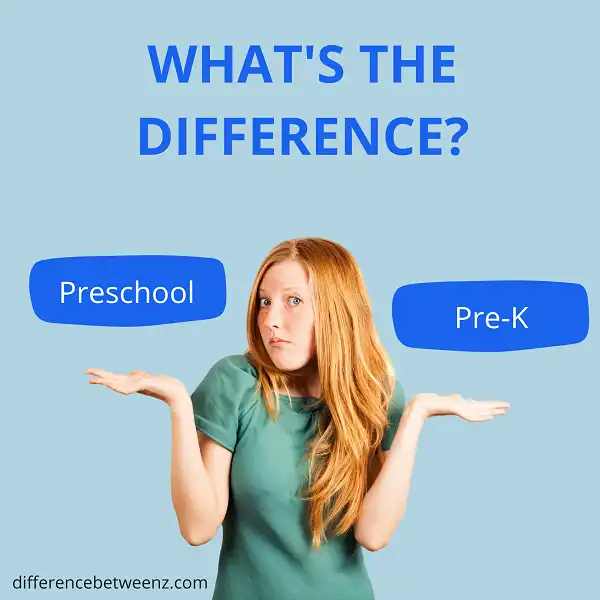Making the decision between enrolling your child in preschool or pre-kindergarten (pre-K) can be a daunting one. After all, both of these educational options offer critical foundational skills and knowledge that help set children up for success as they progress along their academic journey. So how are preschool and pre-K different? In this blog post, we’ll take a closer look at the differences in structure, curriculum, teacher/student ratios and more so you can make an informed decision about which option is right for your family.
What is Preschool?
Preschool is a unique learning experience that comes before kindergarten. Preschool provides an environment where children ages 3-5 can socialize, explore, and develop basic motor skills while playing and having fun. Preschool is tailored to begin developing the foundation of early literacy and math skills in children while also teaching them useful social skills such as sharing, problem-solving, taking turns, following directions, and being part of a group.
Preschool activities focus on combining these foundational after-school materials with lots of playtimes which engages the senses, creativity, critical thinking, and curiosity of young minds. Preschoolers learn best through hands-on experiences that allow them to make sense of their surroundings. Preschools are often vibrant places full of color, movement, music, and engaging activities designed to bring out the natural curiosity in each and every student.
What is Pre-K?
Pre-K, or Pre-Kindergarten, refers to a classroom for children aged four and five years old in which they can learn foundational academic and social skills before entering into a kindergarten program. Pre-K typically has a more child-led environment with activities that focus on encouraging collaboration and creativity. It is often seen as an important part of a child’s overall development, as the foundation for their future experiences in school.
Pre-K is specifically designed to help young children develop language, literacy, and math skills while fostering positive relationships with peers through problem-solving, play, and active learning opportunities. Pre-K is meant to create an environment that encourages exploration and discovery while providing ongoing assistance from teachers as needed.
Difference between Preschool and Pre K
Preschool and Pre-K are two educational experiences that parents often consider for their children.
- Preschool is a play-based program where fun activities are used to introduce the youngest learners to basic reading, writing, math, science, and social skills in a developmentally appropriate way.
- Pre-K is typically for four-year-olds who have already developed a basic understanding of these essential skills, and it focuses on honing those skills by deepening their knowledge level in each subject area.
- Preschool offers an introduction to education as well as socialization, but Pre-K helps students prepare academically for Kindergarten and allows them to become more self-directed learners over time.
Overall, Preschool and Pre-K provide solid foundations that individualize the learning experience for students leading into grade school.
Conclusion
Preschool and Pre-K are two different educational systems for young children. Preschool is designed to prepare children for kindergarten, while Pre-K focuses on preparing children for schooling in general. Which system is right for your child depends on their individual needs and abilities. If you’re not sure which type of program would be best for your child, talk to their educators or contact us for more information. We can help you determine whether a preschool or Pre-K setting would be the best fit for your child’s unique needs.


